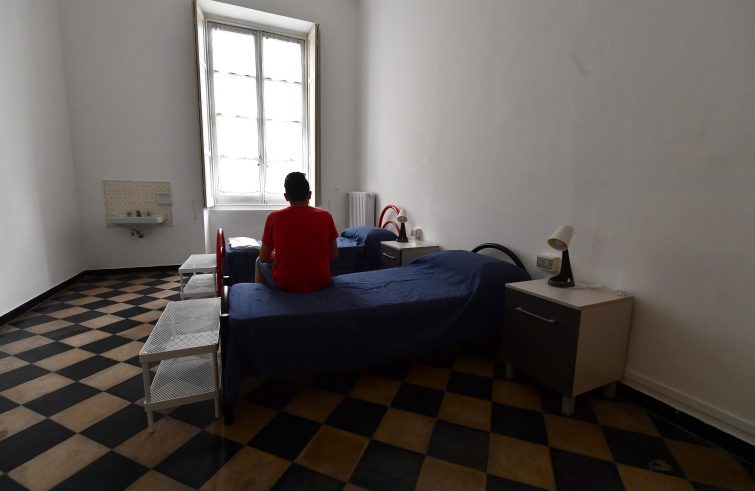
A concerted document with eight priorities and concrete proposals regarding addiction treatment services, to be included in the proceedings of the National Conference on Addiction entitled “Overcoming Fragilities”, held in Genoa 27-28 November. The document was presented at the Chamber of Deputies in Rome on Friday December 17, in the presence of MPs from across the political spectrum, by leading therapeutic community networks: FICT, Comunitalia, Federazione Com.E Lombardia, ACUDIPA, Ser.Co.Re, Acta Lazio.
“The treatment approach adopted in our facilities focuses on the centrality of the person, understood in his or her extraordinary uniqueness and relational capabilities. The objective is to restore full autonomy and independence through a personalised therapeutic plan”,
the signatories of the document explain, regretting that “the position papers drafted in the thematic groups” of the Genoa Conference “fail to highlight this implementation approach effectively. In fact there is a tendency to reproduce a performance-based system which risks leading to a chronic situation. Measures are fragmented into a mere distribution of tasks, lacking effective integration among the various aspects of the system, let alone equal dignity – as duly required.”
Building on this,
The first proposal is “a coherent reform of Presidential Decree 309/90,
envisaging a process-based approach to rehabilitation, offering a comprehensive vision of integrated individual treatment and care.
In addition, legislation covering all forms of addiction, including behavioural addictions, is equally indispensable.”
The second proposal emphasises that a model “that has harm reduction and risk limitation at its core and as an end in itself” is “unacceptable”, given the “due respect for the dignity of each person.” Unfortunately, “this appears to be the case in all the position papers of the Genoa Conference.” The third proposal concerns “a departmental organisation of addiction issues, specific and not incorporated in mental health.”
With reference to the “Health Budget”, having pointed out that “it is an instrument that may effectively integrate stakeholders, including addicts and their families, local community health and social services and the non-profit sector”, the following is stated:
its use, in the context of pathological addictions, is to be understood as an “individual integrated project” which “starts with the first stage of care and diagnosis and ends with labour and social reintegration, harmonising the relevant social and health services, outpatient and/or residential, based on the specific needs of the person.”
Its success depends on “highly integrated” territorial governance, “well-defined and based on the equal dignity of the involved subjects.” Furthermore, emphasis is placed on the need to define “national guidelines, as was recently the case for Integrated Home Care (ADI), which can serve as a regulatory benchmark and ensure the harmonisation of interventions in the various regions”.
“Multidisciplinary services”, already in place in Lombardy, are also proposed to facilitate and improve the accessibility of treatment with a view to freedom of choice for people with addictions. The final points concern “re-launching prevention efforts and refinancing the National Fund for Combating Drugs, set up under Law 45/99, which has become essential for guaranteeing structured educational and health-promotion programmes rather than occasional measures”, while opposing “any attempt at consolidating drug consumption normalisation, since this approach has already caused considerable damage, especially among young people”.
“We firmly believe in educational processes aimed at promoting healthy and drug-free lifestyles,” write the signatories of the document.
“Our intention today is to reiterate, symbolically before the Italian Parliament, the key priorities we believe should be addressed with regard to addiction treatment. It would have been our intention to do so during the Genoa Conference, which, however, failed to include a panel for discussion between public and private social service providers, despite our repeated requests and despite the fact that Presidential Decree 309/90 established the National Conference precisely for the purpose of providing a forum for institutional discussion between professionals in this sector”, said Luciano Squillaci, FICT chairman. He announced that
“a seminar will be held at the end of February, bringing together professionals from the public and private social services sector and political authorities in order to discuss and jointly develop a shared proposal for reforming the services system.”
“We believe that, among the many urgent issues, providing early intervention for minors with addiction problems is of fundamental importance. It is necessary to ensure specific and differentiated access to services for minors as opposed to adults and to guarantee family members the right to enjoy the provisions set out in Law 104 for accompanying their underage children with addiction disorders to treatment pathways in the appropriate public and private facilities,” saidFrancesco Vismara (San Patrignano), acting on behalf of Comunitalia. Giampaolo Nicolasi, facility manager of Comunità Incontro non-profit organisation (Comunitalia), highlighted three specific issues: first of all, “prevention, which is never enough, involving young people in particular; secondly, ensuring the user’s right to choose the treatment facility anywhere in the country, thus favouring regional mobility and, finally, providing concrete tools aimed at bolstering full rehabilitation.”












